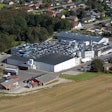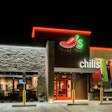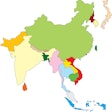Golden Oval Eggs, LLC, one of the nation’s largest liquid egg companies, turned the corner in fiscal 2006 ending August 31, posting a $1 million net income, following a $2 million loss in 2005. This year’s turnaround is still far shy of the $17.9 million profit in 2004, however, due to a year of strong egg demand and high prices, according to the Renville, Minn. company’s annual report filed November 29 with the Securities and Exchange Commission.
Golden Oval revenues were $96.6 million during fiscal 2006, compared to $63.2 million during fiscal 2005, and $83.5 million during 2004. From 1995 to 2006, Golden Oval sales have increased dramatically, from 7 million liquid pounds to 258 million liquid pounds.
Most noteworthy for Golden Oval’s business in 2006 was its acquisition of MoArk’s liquid egg business from Land O’Lakes on June 30, giving Golden Oval five facilities producing various liquid, hard-cooked, dried, refrigerated, and frozen egg products.
Golden Oval says that as a result of the MoArk acquisition, “we are able to further process the raw liquid egg into various finished egg products and through this additional product line, sell products to retail, foodservice and institutional markets, as well as expand our share of the volume of first-stage liquid egg processing.” The company said the product lines acquired have an annualized sales volume somewhat larger than that of Golden Oval, “positioning us to serve larger customers on a broader geographical basis. By adding economic value to unpasteurized liquid eggs in our further processed products, we believe our exposure to the volatility of the commodities markets will decrease as raw commodities become a smaller portion of our total cost.”
In fiscal 2006, three customers represented more than 10% of Golden Oval’s revenues: Michael Foods, 31%; Sunny Fresh Foods, 23%; and Primera Foods, 14%. Non-U.S. sales, primarily to Canada, totaled $3.5 million in 2006, down from $6.3 million in 2004 and $3.9 million in 2005.
The company says that demand for liquid eggs has increased in recent years, a result of several factors: increased fast food restaurant consumption; favorable reports from the medical community regarding the health benefits of liquid eggs; reduced liquid egg cholesterol levels; current high protein diet trends; and industry advertising campaigns. Golden Oval added, however, that there is no assurance that demand for liquid eggs will not decline in the future. Adverse publicity relating to health concerns and changes in the perception of the nutritional value of liquid eggs, as well as movement away from popular high protein diets, could adversely affect demand for liquid eggs, which would have a material adverse effect on the company’s future financial condition, according to the annual report.
Golden Oval also said that the impact of a permanent increase in demand for ethanol may raise production costs, “affecting our ability to compete with other food sources, as eggs become relatively more expensive compared to other food sources.”
The company also noted that the open market quoted prices of liquid unpasteurized whole eggs has fluctuated widely over the last five years, from a low of 21 cents per pound to a record high of 76 cents per pound. “The high occurred in 2004, leading to record profits for the industry and us.” Market prices averaged less than 27 cents per pound in fiscal year 2005 and 2006, both below the five-year average of 35 cents per pound.

















